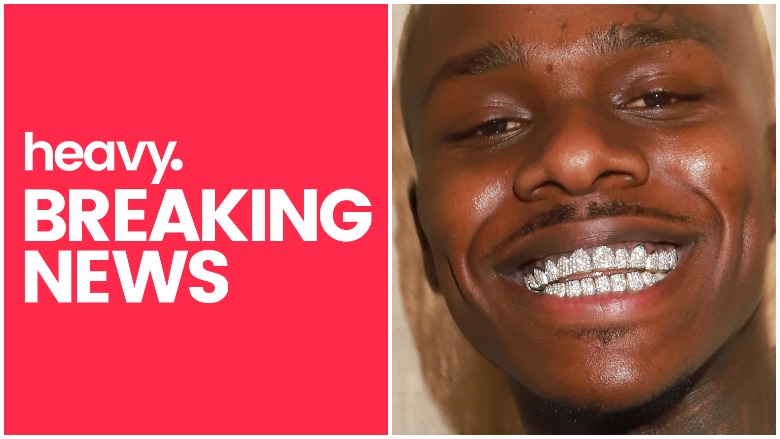
Getty
DaBaby was not shot dead in October 2019. A fake news article began circulating in October 2019 saying that the rapper, whose real name is Jonathan Lyndale Kirk, had been shot dead in Charlotte, North Carolina. The fake article alleges that the suspect is someone who had “beef” with DaBaby. There are no credible reports of this shooting nor has DaBaby exhibited any signs of being shot.
The homepage for the website that has been circulating the fake stories includes a disclaimer, “Create A Prank & Trick Your Friends.” The disclaimer also reads, “We do NOT support FAKE NEWS!!! This is a Prank website that is intended for Fun. Bullying, Violent Threats or posts that Violate Public Order are NOT permitted on this Website.”
DaBaby Has a History With Gun Violence
Gun violence is something that DaBaby has been associated with in the past. In November 2018, Jaylin Craig was shot dead following an altercation involving DaBaby at a Walmart in North Carolina, reported the Charlotte Observer. DaBaby proclaimed his innocence in a video posted to YouTube in the aftermath of the shooting. DaBaby said that he had been shopping with his children and their mother when someone pulled out a gun. Nobody has ever been charged in the death of Craig.
DaBaby Was Recently Accused of Fathering a Child With Another Woman by His Babymama, MeMe
Around the time of the hoax, DaBaby was accused of fathering a child with another woman by his girlfriend, MeMe. DaBaby has admitted to fathering the child but said that he wasn’t with MeMe at the time and therefore, it doesn’t count as cheating.
Death Hoaxes Remain Common in the Social Media Age
Death hoaxes are hugely common in the internet age. In March 2014, ABC News published a guideline for internet users in order to help them to avoid falling for death hoaxes. At that time, a common death hoax suggested that various celebrities, including Jeff Goldblum and The Rock had died after falling from some cliffs in New Zealand. The ABC article pointed out that readers should be eagle-eyed for “bait text.” “Bait text” is something that seems interesting but has been used multiple times in multiple other fake stories.
While a Washington Post article on the same topic encouraged users to stick to known websites and noted that, “Breaking news stories will usually include the reporter’s name; hoaxes, mysteriously, go un-bylined.”
In 2014, The Week published a list of hoax sites. They included, Empire News, The National Report, Huzlers, Daily Currant and Free Wood Post. The website noted that occasionally news stories from satire sites such as The Onion and Clickhole are circulated as legitimate news. The Week article concludes simply that users should, “Take 30 seconds to determine whether something is real before you blast it out to hundreds of people. We’ll all have a better internet for it.” Buzzfeed’s Craig Silverman, a specialist in fake news, told DigiDay in 2012, “Fake news relies on viral sharing. If you think about why so many stars are subject to death hoaxes, they’ve been part of a pop culture that people have an emotional connection to. And that is at the core of what makes fake news work.”
Also in 2014, a digital media professor at Indiana University, Mark Bell, told the New York Times that part of the reason for the prevalence of death hoaxes is that “People like to lie. They get a thrill from it. There is a little hit of dopamine when you lie, especially a lie that is believed by somebody else.” While the Independent rationalized that the popularity for the stories was simply “because people want to read them.” Mark Bell also said of the phenomenon, “There’s not a lot of cost, either financially, morally, legally or criminally in doing this.”
READ NEXT: Teenage Porn Star Controversy Rocks California High School
Comments
DaBaby Not Dead: Charlotte Rapper Is Alive